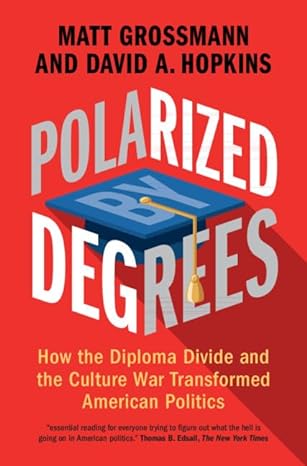Solid - And Solidly Dense - Examination Of The Topic. You know those jokes about the Christmas fruitcakes that are so dense you could use them as an anvil or even the cornerstone of a house? This... is damn near that dense. So be prepared for that up front, and it is a solid examination of political and even, to a lesser extent, religious polarization in the US over the last 60 years or so - with more emphasis on the last 40 years or so, when the authors claim that the "Diploma Divide" began explaining ever more of the results of elections.
Well documented at roughly 33% of the overall text, there isn't anything particularly "explosive" here, but there *is* a lot of detailed discussion of what has occurred and why the authors' research says it happened. One of the few books of its type where the authors are explicit in *not* making policy recommendations, instead taking an attitude of "this is the data we have, this is what we believe it shows, do with it as you will". Which is actually refreshing - the authors note that they are academics working in academia, and even if they have worked with campaigns off and on at times, they are not politicians or political operators, and thus their expertise isn't campaigns or campaign strategy - their expertise is in asking questions, gathering data, and analyzing that data.
Overall, while the outcomes are those we all know, Grossman and Hopkins add more data to the discussion - which is never a bad thing - and thus help aid in our overall understanding of what we have seen, giving us a more complete picture of the events as we know them.
Recommended.
